Steven Gerrard showing the right signs to lift the Rangers crisis and challenge Celtic’s domination with European return
The financial injection that will come if Rangers can beat Ufa on Thursday evening will take Rangers to a level where they can realistically challenge their fiercest rivals once again
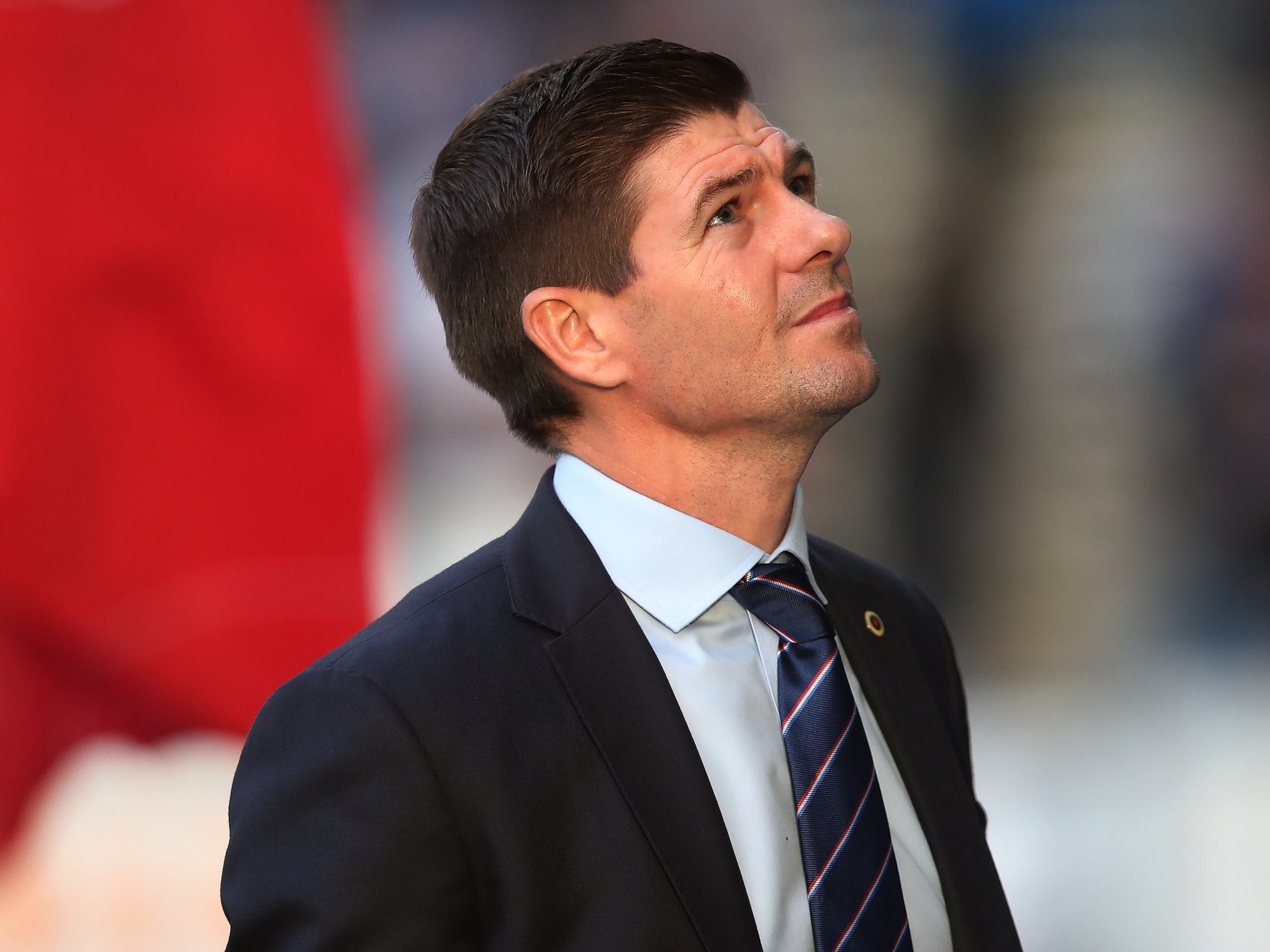
To understand the starting position for any manager of modern Rangers, you first have to grasp fundamentals on the relatively dry subject of finance.
When Walter Smith’s side reached the Uefa Cup final in 2008, Rangers played 19 European matches having entered the Champions League in the second qualifying round before suffering elimination by finishing third in the groups.
Revenues of £75m that year represented a record high even though only £5m of the overall figure was generated from progress in the European competition into which they dropped.
A decade later, the numbers game has become more extreme, reflecting more than ever that interest is rewarded ahead of achievement. Beat Russian side Ufa tonight and Rangers will earn £10m, knowing their Europa League group stage appearance would be worth more than the sum that Celtic received in prize money for winning unprecedented successive domestic trebles. Finishing bottom of the English Premier League, indeed, would prove five times more lucrative than the implications accumulatively if Rangers and Celtic – who face FK Sudova – earn the results they want inside the next 24 hours.
While it is thought Brendan Rodgers has inwardly concluded there is little more he can accomplish at Celtic amidst the restrictions of this unusual landscape, Steven Gerrard’s next two games in charge of Rangers including the Old Firm derby might not only shape the way his first season is remembered but also increase the possibilities for him at Ibrox in the medium and long-term, injecting Rangers with the sort of basic economic income that has not been a feature of their accounts for far too long.
In sporting terms, while no manager has taken Rangers beyond the qualifying rounds of any European interests since 2010, it is surely also significant that no team of any kind since Manchester City in 2008 has entered the Europa League at its earliest step and still been involved come September. Gerrard has been in Glasgow for just eleven weeks but should Rangers prevail on Ufa’s plastic pitch, the outcome will reflect well on him and suggest that his guidance has already helped raise standards.
Though there is more to Rangers’ wider story, it remains relevant at Ibrox as it does elsewhere in football: that everything rises from the abilities of the manager or otherwise drains when he fails. While Celtic’s board reacted to their last and only defeat to Rangers in six years by sacking Ronny Deila and enticing Rodgers, someone who has not only been able to spend impressively within the context of Scotland but has also improved the quality of the players already there through his coaching, Rangers have since thrashed around under three different managers who have in cold analysis not been able to deal with the condition and unique pressures of the club.
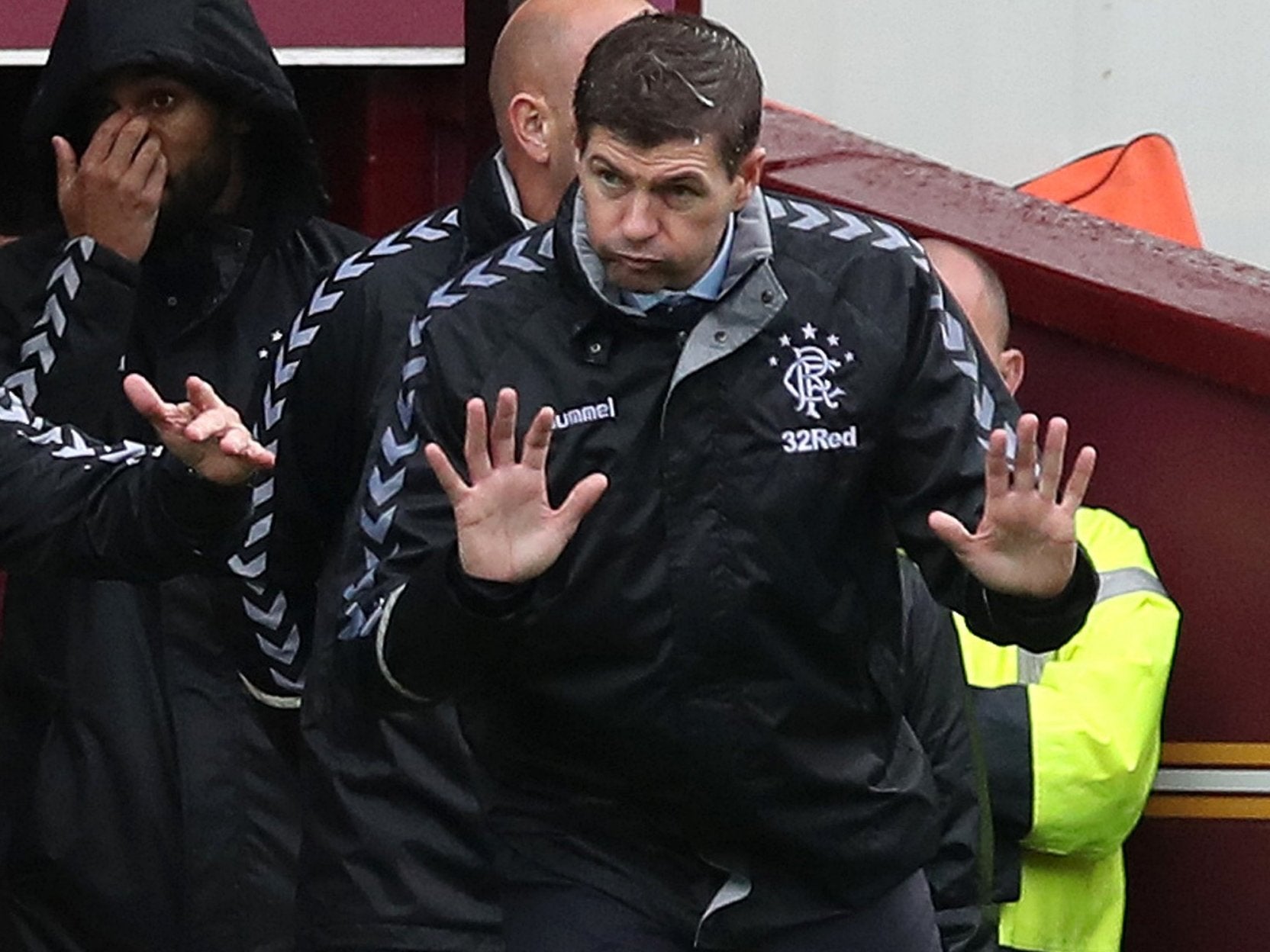
The jump for Mark Warburton from Brentford to Glasgow proved to be too big. He achieved promotion from the Scottish Championship but did not really understand why he was asked about “the current crisis” having led the team to ten victories at the start of that season only to draw the next two.
It has since been acknowledged by the Rangers board that when Warburton departed in February 2017, they sourced his replacement too quickly and that ultimately, when Pedro Caixinha was sacked last October, they then took too long in finding his successor having been too cautious as a consequence of the manner of his appointment.
Initially, Rangers could have waited until the summer when the field of available managers would have been broader but in recruiting Caixinha, there was also a feeling that he would be able to survey what needed to be done and therefore be in a position to act more decisively.

Though the recruitment of Mark Allen as a director of football from Manchester City was, in the meantime, viewed as a coup and a progressive long-term decision, the timing of his arrival – several months after Caixinha’s – contradicted any sensible planning because Allen would not arrive until August and by then, Caixinha had signed many of his own players and Allen was unable to immediately influence the job he was brought in to do.
With Caixinha gone, Rangers interviewed several managers considered in England as Championship specialists before doubts came whether they were suitable or good enough. Though David Moyes had been a Celtic defender, he may have been a serious consideration too had cost not been a feature of discussions. Moyes had received a £5m bonus at West Ham just for keeping them up. Before that, Aberdeen’s Derek McInnes was close to getting the job but having met with Dave King, the Rangers chairman, McInnes decided that he did not foresee the development of a smooth working relationship.
Allen would need time to come to terms with the lower levels of finance he was now working with compared to the resources at City but his authority and contacts would be key in attracting Gerrard from the bosom of Liverpool where he was completing his first season in charge of the under-18s.
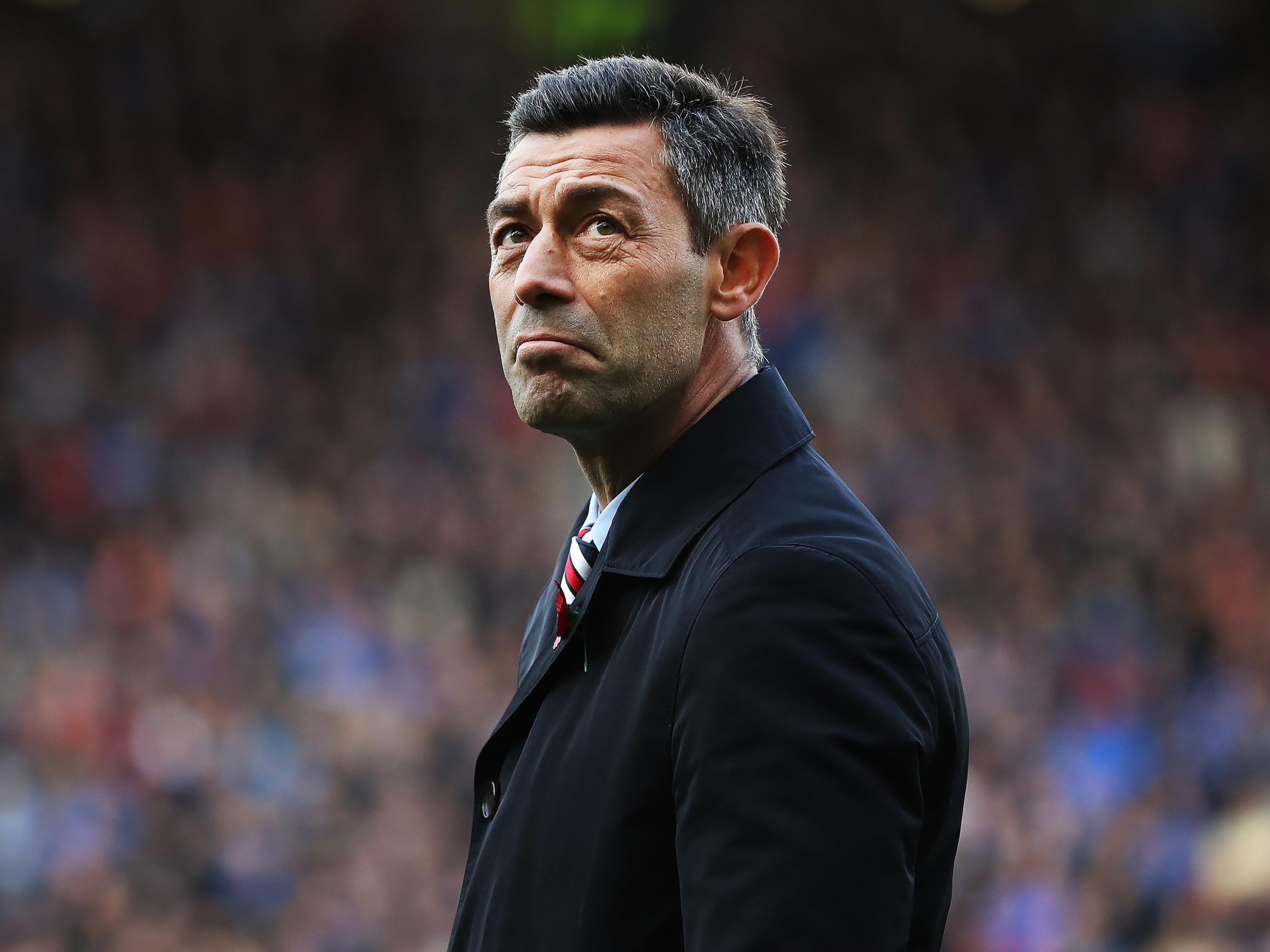
Allen and chief scout Andy Scoulding had agreed that Gerrard had the strength of personality and coaching credentials to become a Rangers manager. While Scoulding knew Gerrard, having spent two years at Melwood after initially being taken there by Roy Hodgson, Allen had encountered Gerrard through their roles at the respective academies at City and Liverpool.
Gerrard would attend Celtic’s 3-2 victory at Ibrox in March. It was an afternoon where Rangers would take the lead twice and end up being defeated – even after Celtic were reduced to ten men with most of the second half still left to play. It proved to be one of seven games that Rangers would lose at home in 2017/18. To Gerrard, who never lost more than five games at Anfield in any one of his 17 seasons there, this highlighted the depth of Rangers’ psychological problems.
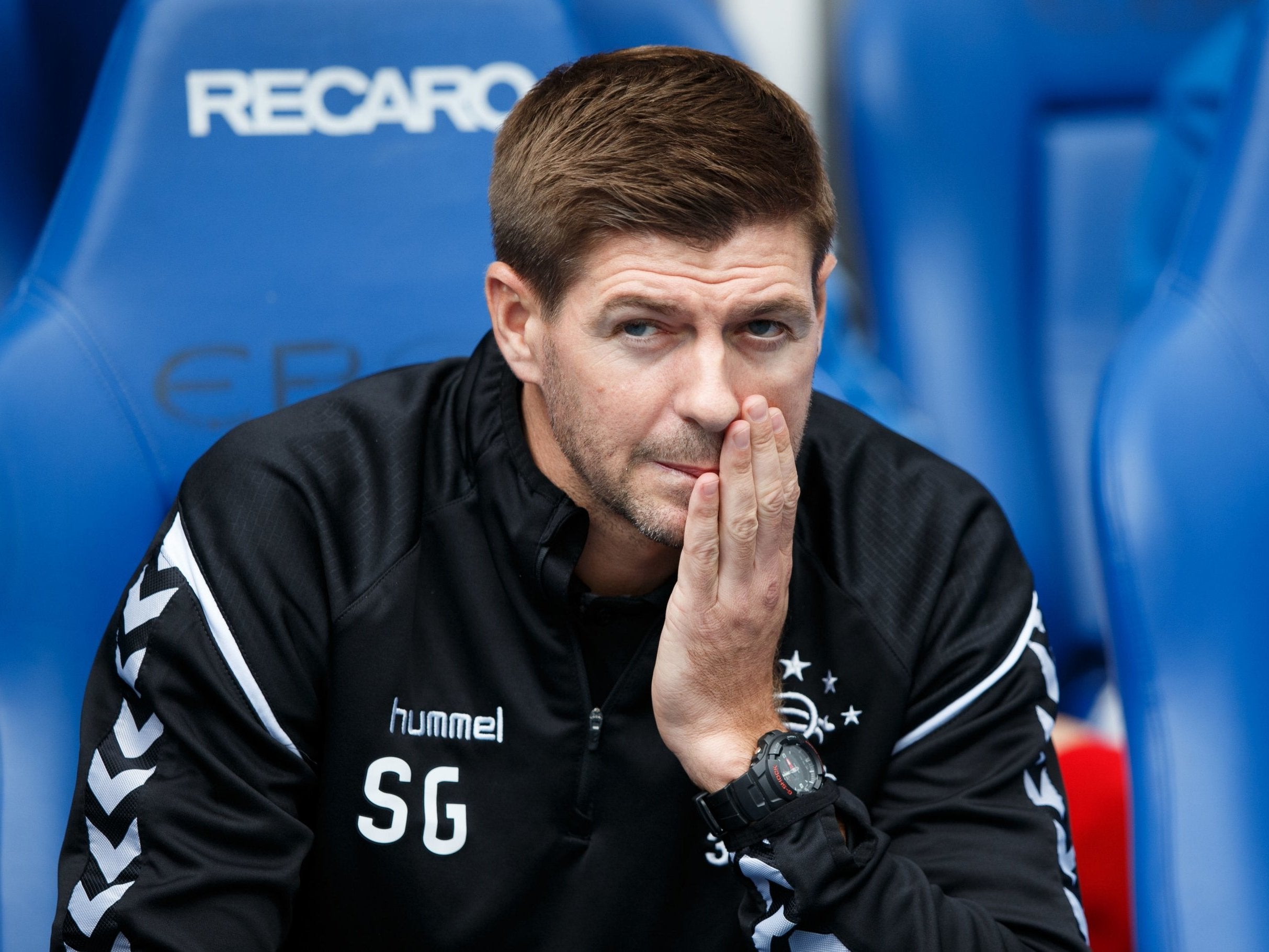
Gerrard immediately identified two things that needed to happen. Firstly, he appointed Gary McAllister as his assistant, a former Liverpool team-mate whose influence on him as a more experienced midfielder in his early days as a professional had been enormous. McAllister never played for Rangers but it is a club he supported as a boy and one whose culture he knows. McAllister and Gerrard would agree that players spend most of their working lives in the dressing room and the canteen of the training ground and so, surroundings were spruced up and menus improved in an attempt to keep them together for longer thus harnessing a greater understanding and spirit.
Gerrard would assess a mixture of ability in the squad that he inherited which was split between separate motivations of the British and Portuguese. There were some talented young players and some with helpful experience but also a decent number who would not be of the required standard if Rangers were to become competitive. Opinions had already been formed by Allen about the future of each member of the Rangers squad and though Gerrard’s decision was final about what would happen, he ultimately shared the same opinion as Allen on most things.
Rangers needed tougher defenders. It was recognised that games in Scotland are not at the same standard as they are in England but they are indeed scraps and as a Rangers player, the majority of opponents appreciate that the most likely route to victory is through the imposition of physicality.
Though Rangers have conceded late equalisers to Aberdeen and Motherwell in each of their two away matches in the league, their European schedule has meant Gerrard has not been able to drill his players quite as much as he would like. Presently, this is a team filled with information, albeit one that hasn’t had the time to practice new messages and yet, in Europe those messages appear to be working after three clean sheets in as many away matches – two of them at venues in Croatia and Slovenia that fall under the description of being ‘tricky.’
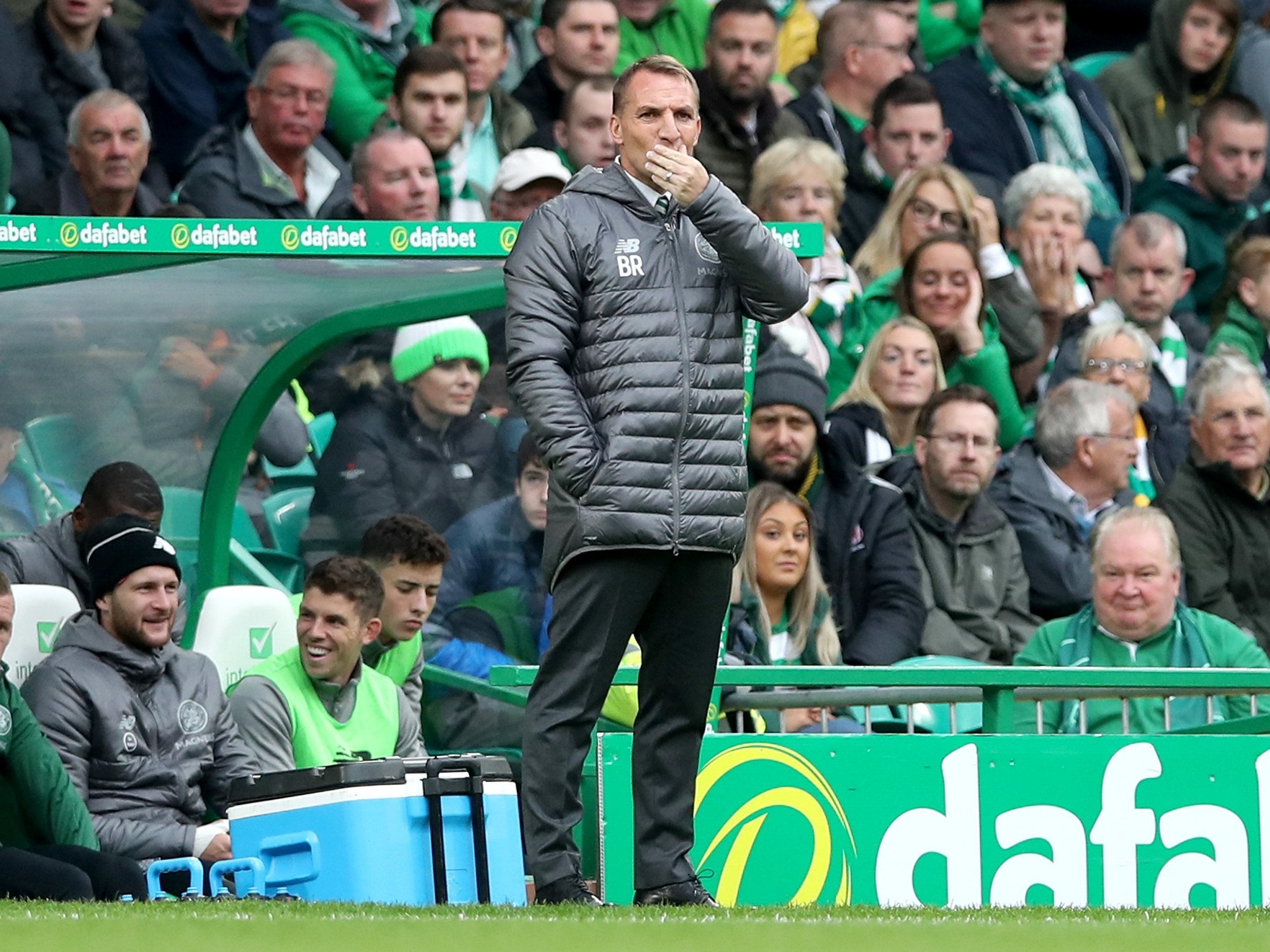
Rangers will return home from Russia in the early hours of Friday morning and realistically, Gerrard will have just one further training session to prepare for Celtic, who suddenly appear more vulnerable than they have been at any other point since Rangers last beat them two and a half years ago, albeit via penalty kicks. On Wednesday, Lyon went public in their pursuit of Moussa Dembélé and it is over the issue of transfer strategy where the relationship between Rodgers and Celtic’s chief executive, Peter Lawwell, has become frayed. Suddenly, indeed, it does not feel like Rangers are the club from Glasgow in a form of crisis.
Join our commenting forum
Join thought-provoking conversations, follow other Independent readers and see their replies
Comments